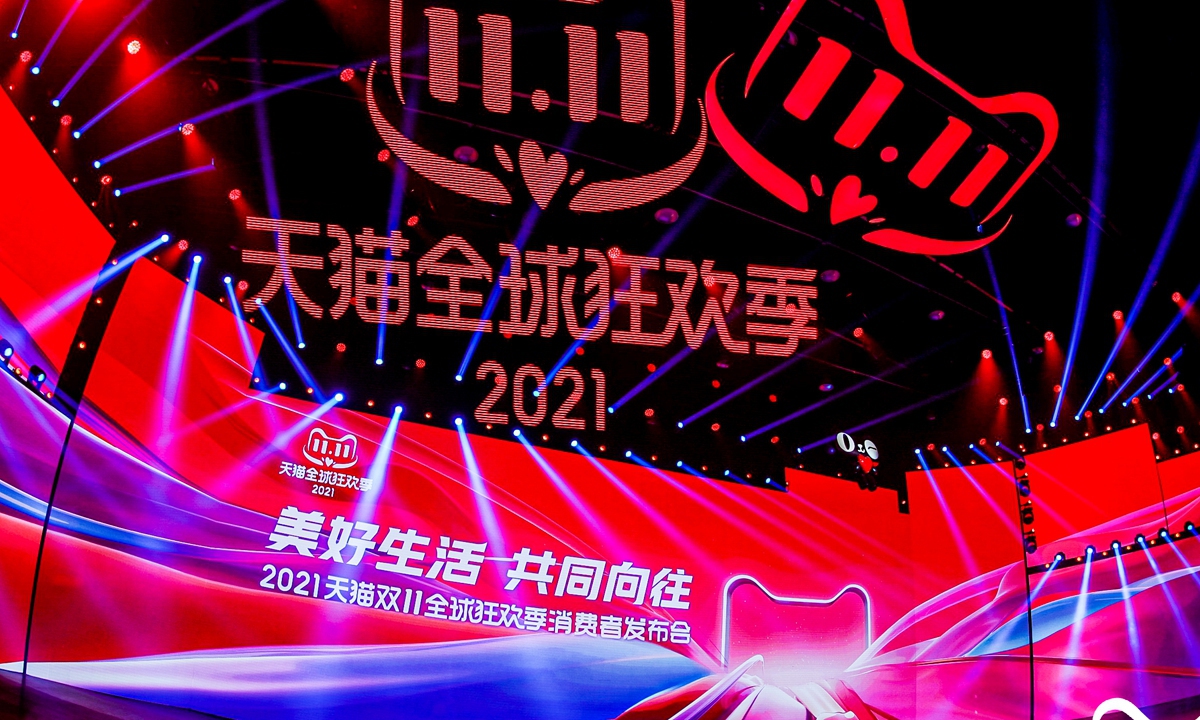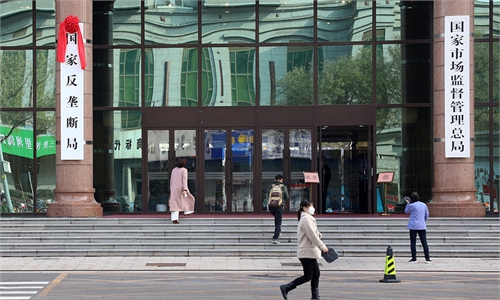
Photo: Courtesy of Alibaba
China's antitrust efforts have made significant achievements, as many monopolistic and unfair business practices have been effectively reined in, and the country will continue to strengthen relevant regulations to ensure fair competition in various sectors, a senior Chinese official said on Sunday.
The tone-setting Central Economic Work Conference has also called for deepening the implementation of policies to ensure fair market competition. Analysts said fair competition will benefit small businesses and industries and help ensure long-term development.
During the annual 618 and Double 11 shopping festivals, unfair businesses practices such as "picking one from two" have basically stopped, Gan Lin, the head of China's newly established national anti-monopoly bureau, said in an interview published on Sunday.
Gan noted that the order of market competition has been improved significantly, and small and medium-sized operators have a broader space to develop their businesses.
Enterprises across multiple industries are able to expand on diverse platforms without worrying about being threatened by industry giants, which will further promote the development of industry chains, while consumers can make purchases following their preferences, leading to an increase in sales, Liu Dingding, a Beijing-based independent analyst, told the Global Times on Sunday.
The Chinese market regulator has intensified regulatory campaigns against monopolistic practices since 2018.
During the period, relevant authorities have investigated and handled 345 cases related to monopolistic practices, repealed and revised nearly 30,000 documents that hindered fair competition in the domestic market, and concluded around 1,920 cases of concentration of business operations, according to Gan.
Gan also noted that Chinese market regulators have strengthened supervision of the domestic platform economy by accelerating the revision of the antitrust law and the issuance of antitrust guidance targeting the sector.
Authorities have also proposed systematic and detailed definitions and regulations issues of concern, such as the inappropriate use of algorithms.
Music platforms' giving up exclusive rights to music labels was a major achievement under tightened regulation. Gan noted that such moves reshaped the market competition pattern.
China's State Administration of Market Regulation (SAMR) ordered Tencent Music Entertainment Group to give up its exclusive rights to music labels in 30 days on July 24, with a 500,000 yuan ($78,421) penalty imposed on the company.
Liu pointed out that the recent listing of NetEase Cloud Music on the Hong Kong Stock Exchange fully proves that second- and third-tier companies in the industry are able to further expand as antitrust measures take shape, while giving market entities more choices and enhancing users' satisfaction.
Gan said that Chinese authorities will continue to strengthen anti-monopoly supervision and enforcement to maintain a fair competitive order in the market, while continuously regulating competition behavior in key areas such as the platform economy, science and technology innovation, information security, and other fields.
The SAMR imposed a 500,000 yuan on companies, including Alibaba and Baidu, for failing to declare illegal implementation of operating concentration regarding 43 merger and acquisition deals in November.
Global Times



